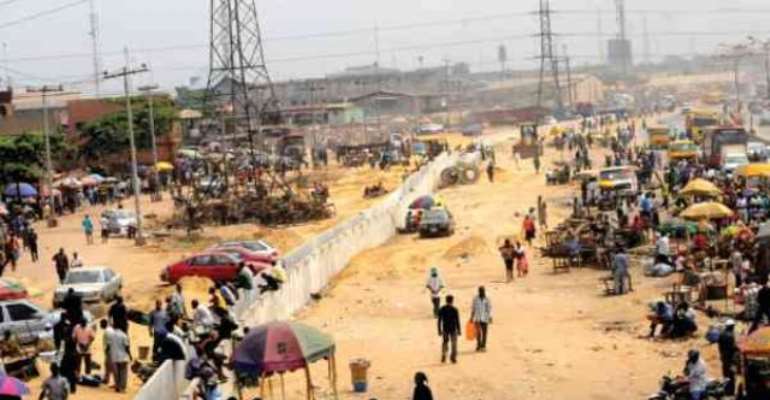CENTRAL BANK, COMMISSION MOVE TO FILL INFRASTRUCTURE GAPS

By Oluwaseyi Bangudu
March 25, 2010 03:37AM
Central Bank and Infrastructure Concession Regulatory Commission are planning a fund for physical development. Photo: NEXT
The Central Bank of Nigeria has said the newly created Infrastructure Finance Office will enhance a sustainable financing framework to address infrastructure gaps in the country. The CBN is also working with the Infrastructure Concession Regulatory Commission (ICRC) to achieve set targets.
Uji Amedu, the Head of the Specialised Services Division of the bank, said during a visit to the commission earlier in the week, that the new unit will address funding gaps in infrastructure development.
A statement issued by Olugbenga Adegbesan, communications head at the commission, quoted Mr. Amedu as saying, “The Central Bank appreciates the need to provide some intervention finance but the burden of huge and long-term facility for infrastructure financing can also be borne by other financial institutions, like the insurance companies and the pension fund administrators, subject to the provisions of relevant laws.”
He also noted that the roles of the commission were similar to those of other government institutions in developed economies, adding that with the necessary support from public and private institutions, the country's infrastructure deficit would witness a turnaround.
Mansur Ahmed, the commission's Director General, described the Central Bank's initiative as a catalyst for actualising the economic vision of the government in the area of physical development.
He said that such financial policy will provide succour to prospective private investors in the government's Public Private Partnership programme.
Beyond government
Mr. Ahmed said the provision of public goods, particularly infrastructure services, is no longer in the sole custody of public institutions. “Demands in terms of the required technical, managerial and institutional capacity for the growing economy and population is beyond the government.” He added that the commission is expected to guide government ministries, departments and agencies responsible for infrastructure services to execute their projects in an effective and sustainable manner. “The commission coordinates the process and provides guidelines to ensure value for money and reasonable returns for private investors,” he said.
The commission
The Infrastructure Concession Regulatory Commission (ICRC) was established by an Act in 2005 to regulate Public-Private Partnership endeavours of the Federal Government, aimed at addressing Nigeria's physical infrastructure deficit which hampers economic development.
The Commission is responsible for setting forth guidelines to promote, facilitate, and ensure implementation of Public Private Partnership (PPP) projects in Nigeria, with the objective of achieving better value for money (VfM) for infrastructure services and enhanced economic growth.
The ICRC Act seeks to provide for the participation of the private sector in financing, construction, development, operation, and maintenance of infrastructure or development projects through concession or contractual arrangements. Thus, the Commission is to regulate, monitor, and supervise the concession and development of projects.
The Commission, inaugurated on November 27, 2008, is expected to take custody of every concession agreement made under the ICRC Act and monitor compliance with the terms and conditions of such agreements and ensure efficient execution of any concession agreement or contract entered into by the government.
Specific details of the finance plan could not be ascertained as at press time, as Mohammed Abdullahi, the spokesperson for the Central Bank, neither picked his calls nor replied his text messages.
Infrastructure challenges
Nigeria has continued to battle with infrastructure challenges, a major factor that has contributed in keeping investors at bay. Businesses and investment continue to be hindered by power, ports challenges, fuel supply, bad roads, lack of adequate security for life and property, inadequate access to credit, policy inconsistency, corruption and lack of skilled labour.
Nigeria's business men and women are not expecting improvement in Nigeria's business climate anytime soon as and have a pessimistic view of the environment in the short run.
In a national survey carried out by Nigeria's premier and most credible research firm, NOI Polls, in partnership with the Nigeria Economic Summit Group (NESG) earlier in the month, top business executives in the country stated that their businesses have continued to be hindered by the lack of these basic amenities in the nation.
